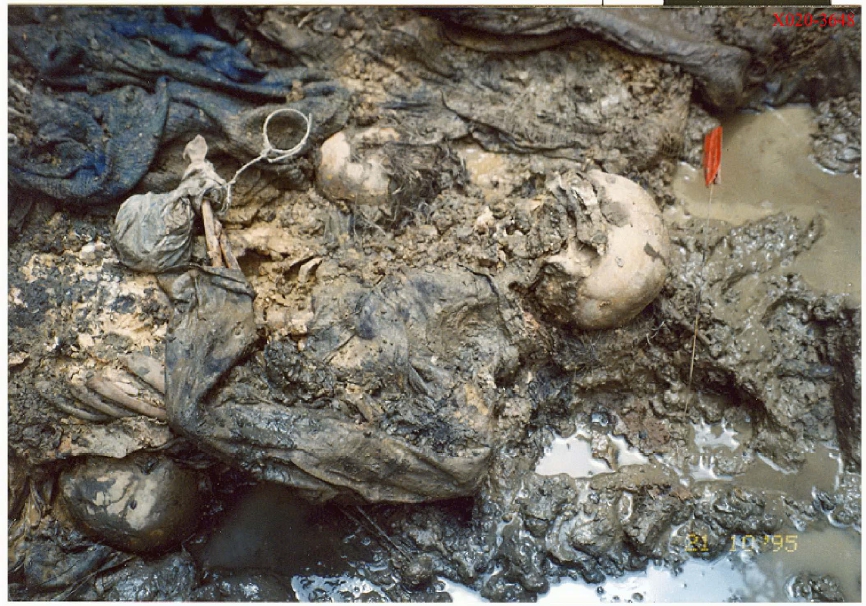Denying genocide should not be called freedom of speech
Institute for the Research of Genocide Canada
Published: March 2, 2011

Srebrenica: Budak mass grave, Kamenica 9 where some of Srebrenica genocide victims had been dumped after systematic killings in July 1995.
By Dr. Srdja Pavlovic
University of Alberta
(Originally appeared in Edmonton Journal, 28 Feb. 2011.)
Does denying genocide count as free speech? Dr. Srdja Trifkovic is an associate of the Rockford Institute and the visiting professor of international relations at the University of Banja Luka in Bosnia and Herzegovina.
Dr. Trifkovic was recently invited to speak about the state of affairs in the Balkans at the University of British Columbia. The local Serbian community had also invited him to visit Edmonton, following his UBC lecture.
He was scheduled to address his supporters this Saturday (Feb. 26) at the University of Alberta and speak about the causes and consequences of Serbia’s decline, and the alleged return of the neo-Ottomans to the political stage in the region, among other things.
All these plans were put on hold because Dr. Trifkovic was denied entry into Canada due to his alleged links with the wartime leaders of the Bosnian Serbs. The organizers of his lecture tour complained bitterly and argued that the decision taken by Immigration Canada had infringed upon the right of the freedom of speech.
I believe the decision of Immigration Canada to deny Dr. Trifkovic entry into this country has merits. I do not think such decisions could be disputed on the basis of the freedom of speech and the necessity to have a dialogue on a given topic.
Both freedom of speech and the need to have a dialogue could not be taken as absolute categories. Denying genocide committed in Srebrenica in 1995 in a manner Dr. Trifkovic does should not be presented and rationalized as practising freedom of speech.
The judgment of the International Criminal Tribunal for the Former Yugoslavia (ICTY) in The Hague had clearly categorized Srebrenica as the crime of genocide. Such a decision was supported by the overwhelming evidence. One should, of course, have the right to one’s own opinion but not the right to one’s own facts.
I have always been in favour of a dialogue and a critical evaluation of evidence. The problem, however, is that Dr. Trifkovic and his supporters do not want to have a dialogue. As any nationalist would do, they see their version of the past as true and valid, and demand that others believe it, too.
While calling for a dialogue they shout at their critics, rather than talk to them and then have the audacity to call such shouting the expression of the freedom of speech.

